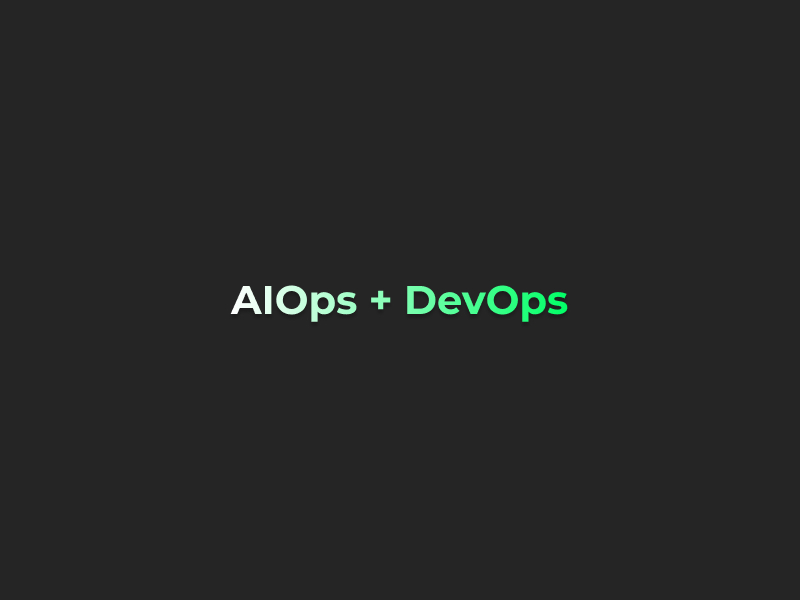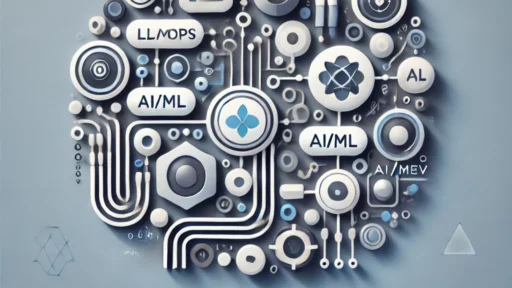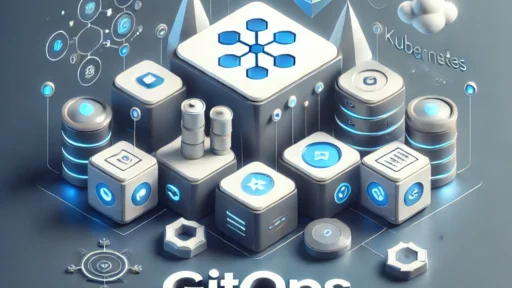The modern IT landscape presents a formidable challenge: managing increasingly complex systems while striving for ever-faster and more reliable software delivery. Traditional DevOps practices, while effective, can struggle to keep pace with the sheer volume of data and the rapid rate of change. Enter AIOps, a transformative force empowering DevOps teams to navigate this complexity and reach new levels of efficiency and effectiveness.
AIOps, or Artificial Intelligence for IT Operations, leverages the power of AI and machine learning to analyze vast amounts of data from diverse sources within the IT environment. This data, often siloed and overwhelming for human analysis, becomes a goldmine of insights under the scrutiny of intelligent algorithms. AIOps platforms ingest data from monitoring tools, logs, incident reports, and more, identifying patterns, anomalies, and correlations that would otherwise remain hidden. This ability to extract actionable insights from the noise is the cornerstone of AIOps’ value proposition.
One of the key areas where AIOps shines is in proactive problem identification and resolution. Traditional monitoring systems often rely on static thresholds, leading to alert fatigue and missed critical issues. AIOps, on the other hand, establishes dynamic baselines based on historical data and identifies anomalies that deviate from expected behavior. This allows for the early detection of potential problems before they escalate into major incidents, minimizing downtime and ensuring service continuity. Furthermore, AIOps goes beyond simply identifying issues; it provides context and suggests potential solutions based on historical data and similar incidents, empowering teams to take swift and decisive action.
The automation capabilities of AIOps further enhance DevOps efficiency. Repetitive tasks such as log analysis, alert correlation, and incident categorization can be automated, freeing up valuable time for DevOps engineers to focus on more strategic initiatives. Additionally, AIOps can automate remediation workflows, triggering predefined actions to resolve issues without human intervention. This not only accelerates incident resolution but also reduces the risk of human error. AIOps fosters a culture of collaboration and data-driven decision-making within DevOps teams. By providing a single source of truth for IT operations data, AIOps platforms break down silos and enable better communication between development and operations teams. This shared understanding of system behavior and performance fosters a collaborative approach to problem-solving and continuous improvement.
As we move into a future where IT systems continue to grow in complexity and the demand for agility intensifies, AIOps will undoubtedly play a crucial role in empowering DevOps teams to rise to the challenge. The ability to harness the power of AI and machine learning to analyze data, automate tasks, and proactively resolve issues will be essential for organizations seeking to maintain a competitive edge in the digital era.

Understanding AIOps:
AIOps platforms ingest massive amounts of data from various IT operations tools – monitoring systems, logs, incident reports, and more. By applying machine learning algorithms, AIOps analyzes this data to:
- Identify patterns and anomalies: AIOps detects unusual behavior within the system, predicting potential issues before they cause major outages or performance degradation.
- Automate routine tasks: Repetitive tasks like log analysis, alert correlation, and incident categorization can be automated, freeing up valuable human resources for more strategic work.
- Provide actionable insights: AIOps doesn’t just identify problems; it also provides context and suggests potential solutions, helping teams quickly understand and resolve issues.
AIOps Optimizes Key DevOps Processes:
- Monitoring and Alerting: AIOps platforms go beyond basic threshold-based alerts. They dynamically establish baselines, identify anomalies based on historical data, and provide context-rich alerts, reducing alert fatigue and enabling faster response times.
- Incident Management: AIOps automates incident classification, prioritization, and routing, ensuring the right team is notified and equipped with the necessary information to take action. Additionally, AIOps can suggest potential solutions based on historical data and similar incidents.
- Root Cause Analysis: AIOps platforms excel at identifying the root cause of issues by analyzing complex relationships between various data points. This allows teams to address the underlying problem, preventing future occurrences and improving system stability.
- Performance Optimization: AIOps analyzes performance data to identify bottlenecks, resource constraints, and potential optimization opportunities. This leads to improved application performance, resource utilization, and user experience.
- Capacity Planning: AIOps predicts future resource needs based on historical data and trends, enabling proactive scaling and preventing performance issues due to resource limitations.
- Change Management: AIOps analyzes the impact of changes before deployment, reducing the risk of outages and ensuring smoother transitions.
Benefits of AIOps in DevOps:
- Improved Efficiency and Productivity: Automating routine tasks and providing actionable insights allows teams to focus on high-value work, leading to increased efficiency and productivity.
- Reduced MTTR (Mean Time to Resolution): Faster detection and diagnosis of issues, along with automated remediation, leads to significantly reduced MTTR, minimizing downtime and business impact.
- Proactive Problem Solving: AIOps shifts the focus from reactive firefighting to proactive problem-solving, preventing issues before they occur and ensuring greater system stability.
- Enhanced Collaboration: AIOps provides a single source of truth for IT operations data, facilitating better communication and collaboration between development and operations teams.
- Continuous Improvement: AIOps platforms continuously learn and adapt, improving their accuracy and effectiveness over time.
Implementing AIOps in your DevOps Strategy:
- Define Goals and Objectives: Clearly identify the challenges you want AIOps to address and the desired outcomes.
- Data Collection and Integration: Ensure you have access to relevant data from various sources and establish efficient data pipelines for AIOps platforms.
- Choose the Right AIOps Solution: Evaluate different AIOps platforms based on your specific needs and ensure seamless integration with existing tools.
- Start Small and Scale Gradually: Begin with a focused use case and gradually expand AIOps implementation as you gain experience and confidence.
- Invest in Training and Skills Development: Equip your team with the necessary skills and knowledge to leverage AIOps effectively.
Challenges and Considerations:
- Data Quality: AIOps relies heavily on high-quality data. Poor data quality can lead to inaccurate insights and ineffective automation.
- Complexity: Implementing and managing AIOps platforms can be complex, requiring expertise and careful planning.
- Cost: AIOps solutions can be expensive, requiring a thorough cost-benefit analysis before investment.
- Cultural Shift: Embracing AIOps requires a cultural shift towards data-driven decision-making and automation.

The Future of AIOps and DevOps:
AIOps is still evolving, but its potential to revolutionize DevOps is undeniable. As AI and machine learning capabilities advance, AIOps platforms will become even more sophisticated, offering deeper insights, greater automation, and predictive capabilities.
The future of DevOps lies in intelligent, data-driven automation. By embracing AIOps, organizations can unlock significant benefits, including improved efficiency, reduced downtime, and enhanced IT service delivery. As DevOps teams navigate the ever-evolving technology landscape, AIOps will play a critical role in ensuring they can effectively manage complex systems and deliver software with speed and reliability.




